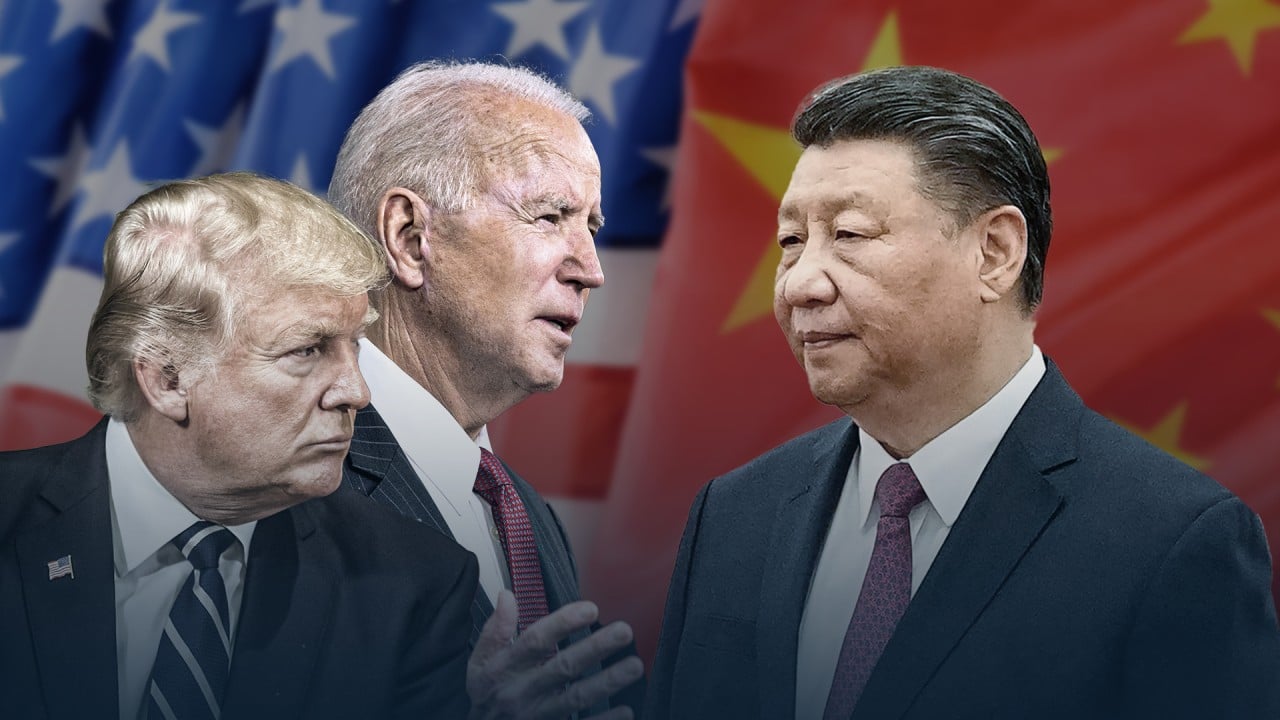
Biden’s shorter Asia trip sparks concerns about US commitment to region, efforts to counter China
- US president’s truncated visit is an ‘unwelcome reminder’ that Washington’s pledges to the region are at the mercy of ‘increasingly fickle politics on the US home front’
- Biden’s presence at the G7 summit and possible meetings with Quad leaders in Hiroshima could still show their resolve to countering China’s influence, observers say
However, the sudden change of plans serves as a sobering reminder that Democrats also have domestic battles to fight.
Biden cancels stops on Asia trip because of US debt limit stand-off
Announcing the shortened trip on Wednesday, Biden said that as president, he had to respond to critical matters “all at once” and that he was confident of making progress towards “avoiding default and fulfilling America’s responsibility as a leader on the world stage”.
Ian Hall, professor at Australia’s Griffith University, described the development as an embarrassment for the Biden administration, while Harsh V Pant, an international relations professor at King’s College London, said Washington’s domestic woes “cast a cloud over American strategy in the region”.
Biden’s truncated visit will “serve as an unwelcome reminder of the extent to which the US’ depth of commitment to the Indo-Pacific region is at the mercy of increasingly fickle and idiosyncratic politics on the US home front”, according to Sourabh Gupta, a senior fellow at the Institute for China-America Studies in Washington.
Lu Xiang, an expert on US affairs at the Chinese Academy of Social Sciences, offered a similarly scathing assessment.
“Apart from raising doubts about Biden’s reassurances about the US financial system and its economy, it’s a blow to US efforts to upgrade the Quad grouping and Washington’s battle to reassert itself in the South Pacific to counter China,” Lu said.

G7 show goes on
Dylan Loh of Singapore’s Nanyang Technological University said he believed that ultimately, the plan changes “would not be a major factor in eroding trust” as Biden was still making the effort to be at the G7 table.
While next week’s Quad meeting in Sydney has been cancelled, the four leaders proceeding with joint talks in Hiroshima would demonstrate their resolve “to work together to constrain China’s more assertive behaviour within the region”, according to Stephen Nagy, professor of politics and international studies at Tokyo’s International Christian University.
‘Little Nato’: will Biden’s G7 unity push create an ‘economic iron curtain’?
Richard Maude, executive director for policy at Asia Society Australia, said the “effectiveness and value of the Quad won’t be determined by a single meeting”.
Offering a contrary view, Hugh White, emeritus strategic studies professor at the Strategic and Defence Studies Centre of the Australian National University in Canberra, said there was no need for hand-wringing over the cancelled Quad meeting.
“The reality is that the Quad has little serious strategic significance, despite the hype, because the four members have much less alignment of their strategic interests and objectives than the hype assumes,” White said.

Boon for Modi?
Some observers said the disappointment from Biden’s change of plans would be most acutely felt by Papua New Guinea and other attendees of the US-Pacific Summit that would have been held at Port Moresby.
Biden’s planned visit – albeit for three hours – would have been the first by a sitting US president to the Pacific nation, amid intensifying efforts by both Washington and Beijing to court countries in the region.
Marc Lanteigne, an associate professor at the University of Tromso in Norway, said “the US may lose the momentum it had built up in trying to restart relations with many key Pacific governments as a means of countering Chinese influence in that region”.
The Quad says it’s a ‘positive alternative’ to China. Can it deliver for Asia?
Modi will be in Hiroshima for the G7 talks as an invitee of the host, Japan’s Prime Minister Fumio Kishida. He is expected to continue on to Australia for talks with Prime Minister Anthony Albanese, even though the Quad meeting has been cancelled.
Rafiq Dossani, director of the US-based RAND Centre for Asia-Pacific Policy, said Biden’s absence was “good for Modi [as] he can keep the spotlight”, though he added that the impact of the Indian leader’s Pacific visit would depend on the socio-economic aid offers pledged during his two days in Port Moresby.




